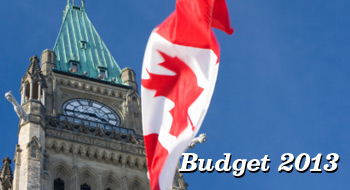

Federal Minister of Finance James Flaherty provided some modest relief in the 2013 budget to certain employers in respect of the pension plan deemed supply rules, originally implemented in 2010, that apply to fiscal years commencing on and after Sept. 23, 2009.
This measure will apply in respect of registered pension plan (RPP) contributions made on or after the later of Jan. 1, 2014, and the day of royal assent to the enacting legislation.
Here is a summary of the rule changes effective as of March 20, 2013.
- Relief from complexities associated with Tax Adjustment Notes required to avoid double taxation in respect of the deemed supply rules where actual supplies are made by the employer. Where a joint election is made by the employer and the pension entity (which presumably could also be the employer acting as the “plan manager” reporting entity in respect of the pension entity), the actual supply would be treated as if it had been made for no consideration (e.g., not subject to collection of GST/HST).
- Where the joint election described above is not in effect, relief from deemed supply rules in a particular year where the amount of GST (or federal part of the HST) for the preceding year is less than each of the following threshold amounts: $5,000; and 10% of the total net GST (and the federal component of the HST) paid by all pension entities of the pension plan in that preceding fiscal year.
- Where the threshold amounts described above are exceeded, limited relief to the same thresholds for “internal pension activities” that are not supplied to the pension entity will be available.
“The Tax Adjustment Note relief will be particularly helpful to plan sponsors that seek reimbursement from the pension plan for the value of their in-house resources,” says Greg Hurst, managing director of Greg Hurst & Associates Ltd. “The minimum thresholds for full and limited relief from deemed supply rules are also very welcome. We believe many plan sponsors currently burdened by deemed supply requirements may be able to escape application of the deemed supply rules entirely particularly if they can implement the strategies we can supply to shift receipt of third-party supplies and applicable GST/HST directly on to their pension entity.”
